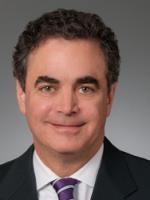A federal district court granted summary judgment in favor of the SEC in an action against an investment adviser that engaged in a long-term fraudulent scheme to collect bogus research expenses and higher fees from two private funds managed by the adviser.
Key Takeaways
Most of what investment advisers do falls under the general anti-fraud prohibitions in Sections 206(1) and (2) of the Investment Advisers Act and the general fiduciary duties that are enforced through those prohibitions. The courts and the SEC have read these provisions to require advisers: to avoid all conflicts of interest, or at least to fully disclose conflicts to clients; and to put clients’ interests ahead of the interests of advisers and their personnel; and these fiduciary obligations are currently subject to rigorous enforcement.
Summary
The managing member and CEO of the investment adviser to two private funds, and an employee of the adviser who served as the chief operating officer, engaged in a scheme to defraud the funds of illegitimately claimed research expenses. They misrepresented the employee as an independent research consultant so that the employee could be paid with investor money rather than by the adviser, as was required by the funds’ governing documents.
When the soft-dollar balance fell too low to pay the employee’s fake research invoices, the employee personally churned the stocks in the private funds’ accounts for the sole purpose of generating soft dollars. The excessive trading led to a 600 percent increase in trade commissions charged to the funds, causing further losses for fund investors.
The private funds managed by the investment adviser were authorized to pay the adviser in only two manners: They paid the adviser a monthly management fee of 0.125 percent of the monthly balance of each investor’s capital account in the funds, and an annual performance fee of 20 percent of the funds’ investment gains. The funds’ governing documents did not allow the adviser’s officers or employees to draw a salary from the funds.
The CEO and the employee, on behalf of the investment adviser, opened soft-dollar brokerage accounts in the private funds’ names. Soft dollars were derived from brokerage trade commissions charged to the funds on each trade placed by the CEO or the employee in the funds’ accounts.
The investment adviser was not permitted to draw on the soft-dollar balance, because to do so would have created a conflict of interest in which the adviser could potentially receive soft dollars generated by its clients’ trade commissions. Soft dollars could only be paid upon the adviser’s authorization to third parties, who provided research-related services that assisted the adviser in its investment-making decisions.
The employee issued monthly invoices for his work at the investment adviser and received regular monthly payments for his work. During one period, the monthly salary payments totaled $549,284.97; $449,784.97 of this amount consisted of “soft dollars,” and the remaining $99,500 of salary payments came directly from the adviser. The adviser was, in turn, reimbursed by the private funds for these monthly payments to the employee.
The private funds’ governing documents provided that the investment adviser could spend “soft dollars” on research products or services provided to the adviser by others. The governing documents did not allow the adviser to use soft dollars to pay for anything other than research products or services. They did not allow the adviser to use the soft dollars to pay the salaries of the adviser’s officers or employees.
The employee created monthly invoices for his work at the investment adviser. Each invoice amount usually matched the amount of the salary payment the employee received each month. The invoices merely stated that the employee’s services consisted of research provided for the adviser.
The CEO told the party that paid the soft dollars that the employee was an independent research consultant.
Penalties
The SEC charged the investment adviser and the individual defendants with 16 counts of violating the antifraud provisions of the federal securities laws and certain reporting provisions. The court concluded that permanent injunctions against the adviser and its CEO were appropriate given the repeated exploitation of investors. The court also ordered joint and several disgorgement of ill-gotten gains of just over $630,000, plus prejudgment interest, and a $100,000 civil penalty.





 />i
/>i

